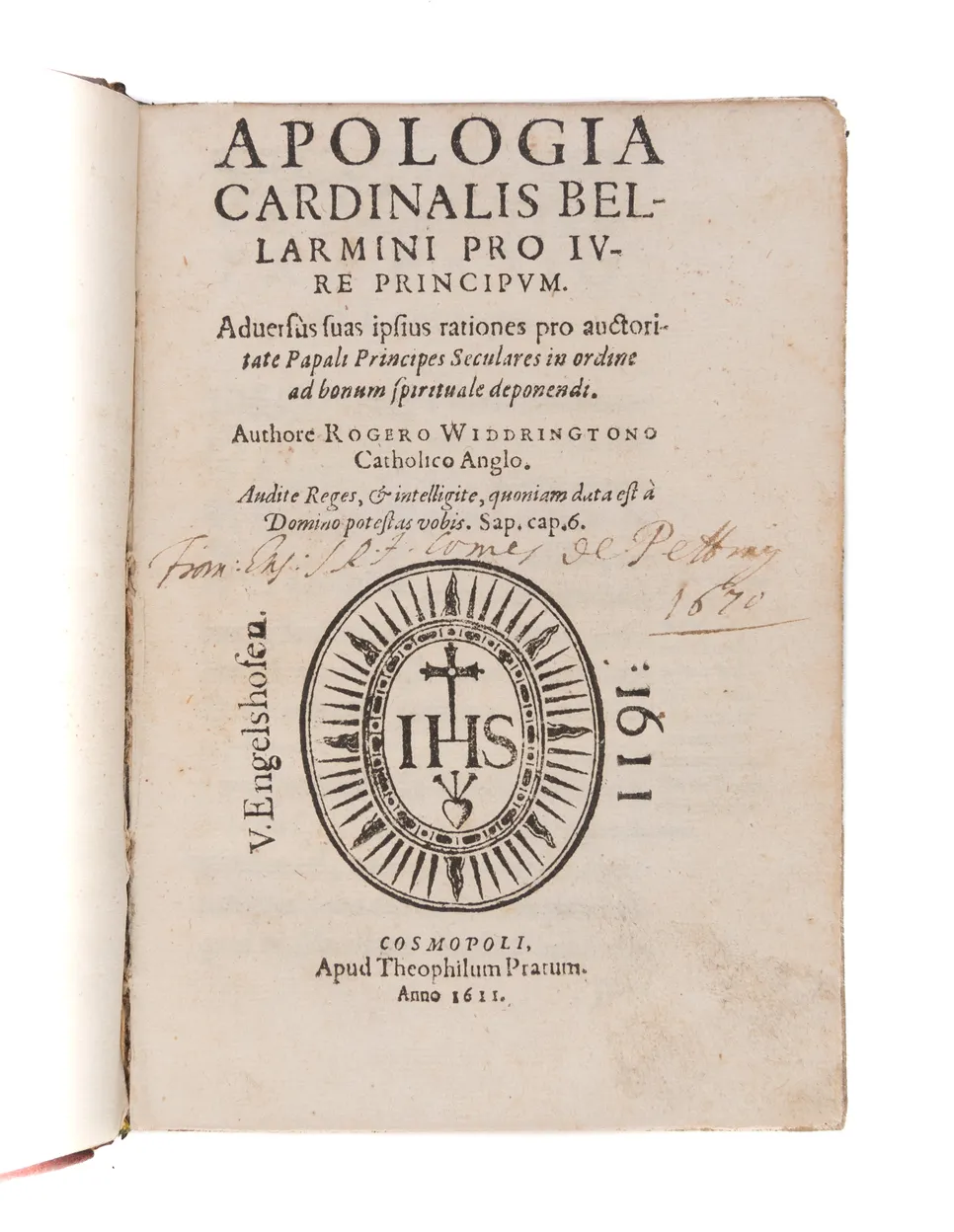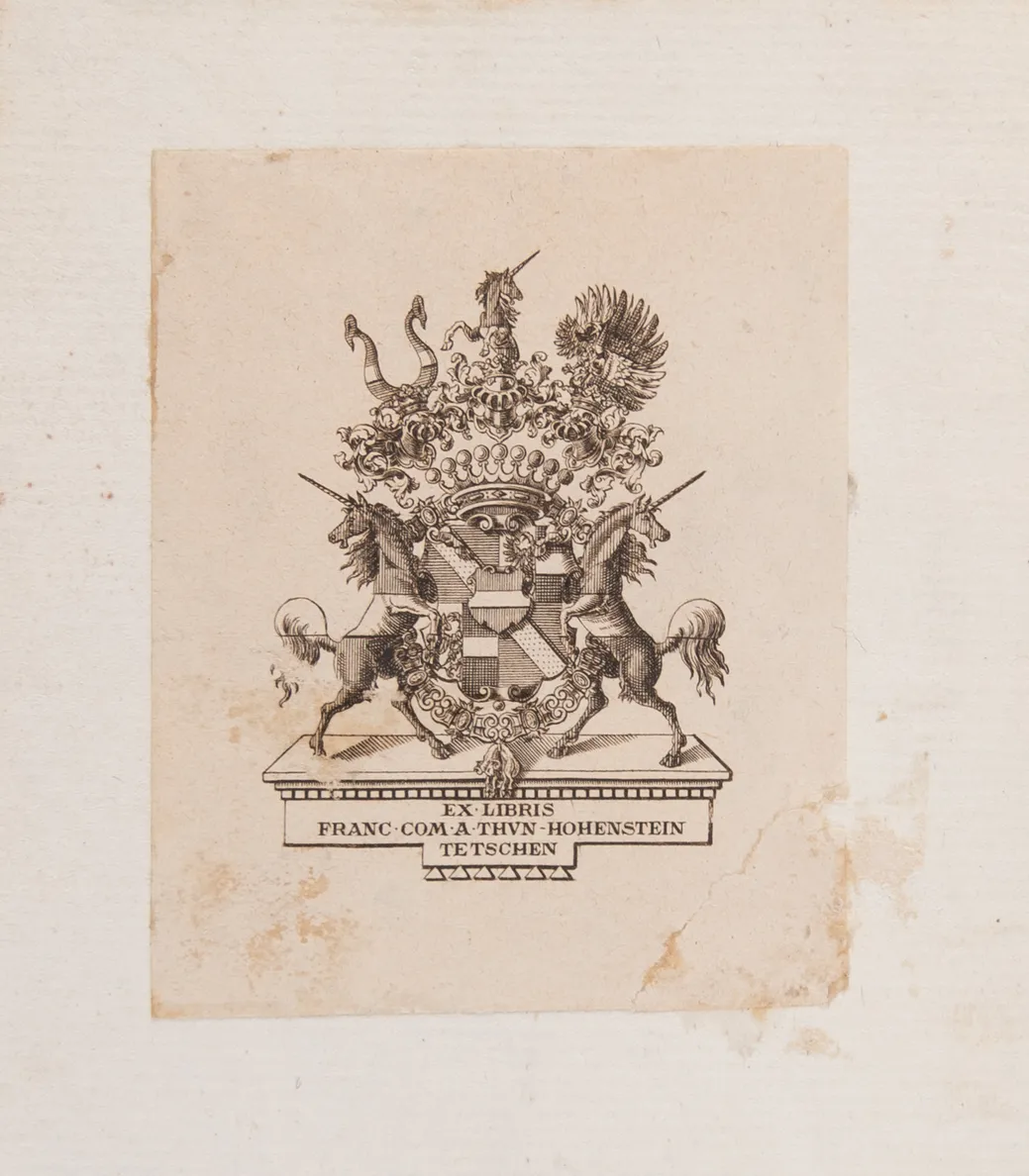STC 25596
Surreptitiously printed in "Cosmopoli". Bound in red morocco with the arms of the Spanish nobleman Don Ramiro Nunez de Guzman and his wife.
Thomas Preston (1567-1647) was a Benedictine monk most famous for his contributions to the debate surrounding the 1606 Oath of Allegiance to James I, which followed immediately after the Gunpowder Plot of 1605 and required Catholics to swear that their loyalty was to the King and not to the Pope. Preston's stance remains interesting as it argues that his fellow Catholics should not object to taking the Oath as "there was no definite prohibition or, if there was, there was also a body of theological opinion which would allow the oath, leaving the matter merely ‘probable’". (ODNB) Nevertheless, for recusant Catholics who refused to take the Oath a "probable" chance of not offending God was not so easy a position to defend, and there was much further debate from both sides over the arguments Preston makes in this book. Although Preston was sent to Clink prison, this text was favourable to the King and as such he was allowed to enjoy a relatively peaceful confinement. Rome was less sympathetic, banning many of his books and placing them on the Index.
Preston's pseudonym, Roger Widdrington, was a real person whose name Preston used to protect himself from retaliation following his controversial publications. ODNB notes that "The real Widdrington was a keenly recusant minor landlord in Northumberland, a useful front who, because of his remoteness, would not be likely to come to much harm".
Armorial binding of Don Ramiro Nunez de Guzman, Duke of Medina de las Torres (d. 1668), who served as viceroy of Naples from 1638-1644. His large library numbered over 4500 printed books and 430 manuscripts, all uniformly bound in red morocco, with his arms and those of his wife on the front cover and his device, a plant and grasses below a starry sky with the motto "Revoluta Foecundant" above.
Later bookplate of the Tetschner Bibliothek des Grafen Franz von Thun-Hohenstein zu Teschen [Thun, Bohemia].





